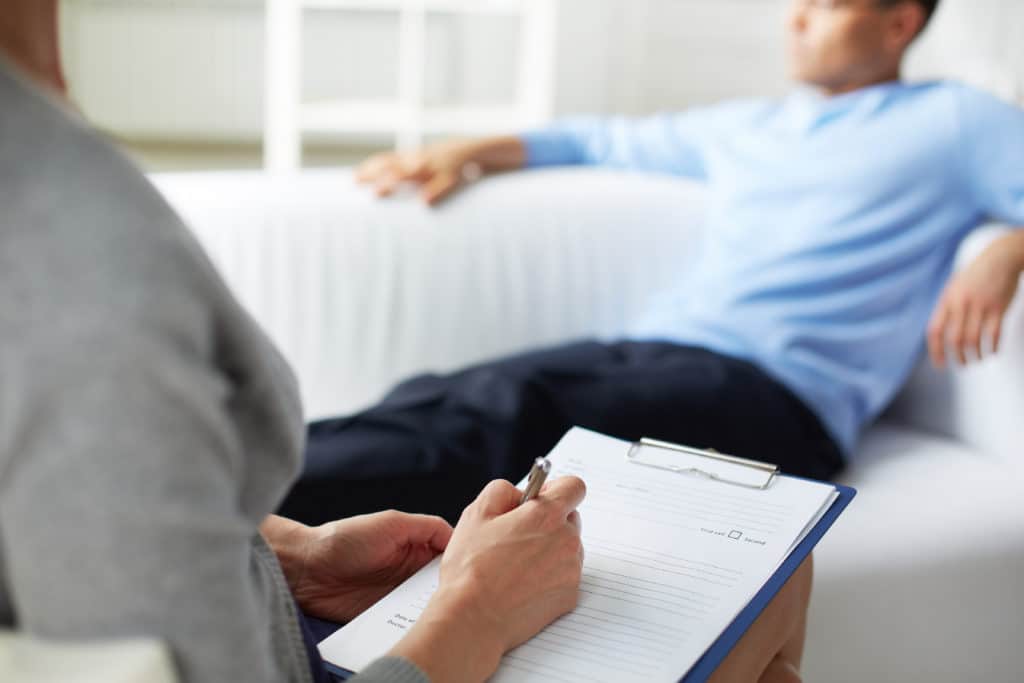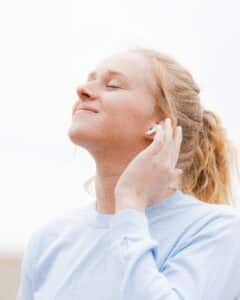If you or someone you love is struggling with signs of depression, you can find mental health treatment at Water Gap Wellness Center. Our Pennsylvania mental health treatment center provides a wide range of outpatient programs with flexible hours and top-notch mental health care. There are many therapies used for mental health treatment, but finding the most effective therapy used for depression treatment may be challenging.
Contact Water Gap Wellness Center today to learn more about our Pennsylvania mental health treatment services.
What Are the Causes of Depression?
There are many causes of depression. Some include:
- Genetics
- Substance abuse
- Environment
- Trauma
For many people, depression is caused by more than one thing, like genetics and environment or trauma and substance abuse. It’s not uncommon for people struggling with depression to also struggle with anxiety.
How to Treat Depression?
Therapy used for depression treatment is the most effective way to overcome your mental health disorders. In some cases, medication might be recommended as part of your depression therapy program. However, medication is much less effective in isolation and should be paired with therapy.
Depending on your circumstances, you might start with medication and transition away from it, replacing the medication with skills learned during therapy. In other cases, you might currently be on medication and need a different medication in addition to therapy.
Treatment looks different for everyone, which is why it’s important to contact Water Gap Wellness Center to have a specialist review your case and give you an assessment.
What Therapy is Used for Depression Treatment?
Depression treatment involves psychotherapy and cognitive behavioral therapy.
Psychotherapy
One therapy used for depression treatment is psychotherapy. This is commonly called “therapy,” and it can take place one-on-one or in group settings. Both are common parts of a depression therapy program at a depression therapy center.
During these sessions, you’ll talk with licensed professionals who can help you identify things that might have triggered your depression and work through them. Individual and group therapy used for depression treatment can help you understand what behaviors or ideas may have contributed to your current depression, what life events may have contributed, and how you can apply coping skills and other problem-solving skills to regain control and overcome symptoms of depression.
Cognitive Behavioral Therapy (CBT)
Cognitive behavioral therapy used for depression treatment is one of the most common modalities and works on the concept that what you think and how you feel impacts how you act. All three of these work together.
Changing the way you have learned to think can change how you feel and how you behave. A cognitive-behavioral depression therapy program helps you understand automatic thoughts.
Automatic Thoughts
Automatic thoughts are the things that pop into your head, usually based on an emotion. These thoughts can be positive or negative, and they can lead to positive or negative feelings and behaviors. Examples include:
- “I feel anxious; I’ve failed at rehab before, so I will fail again. I shouldn’t even try.”
- “Everything thinks I am a failure. I don’t want to meet with my counselor or talk to a rehab facility; they will just think I am a failure too.”
- “I could never quit drugs before, so what’s different now? I might as well keep using it.”
- “My boss wanted to see me today; he must be firing me.”
Without treatment at a depression therapy center, your automatic thoughts can become self-fulfilling prophecies, reinforcing things like depression, low self-esteem, stress, and bad behavior.
With a depression therapy program, you can learn to replace these automatic thoughts with positive thoughts. Doing so can change how you feel and how you act.
What Does a Depression Therapy Session Entail?
With Water Gap Wellness Center, you can participate in individual or group therapy used for depression treatment at our facility. At a depression therapy center, a typical session will entail a 30-minute or 60-minute meeting with a trained therapist. If you have individual therapy used for depression treatment, you’ll meet one on one with the therapist. You’ll meet with a group if you are participating in group therapy.
Psychotherapy Sessions
You can expect to meet with a professional therapist individually or in a group setting during a typical session. They will teach you about depression and how to manage stress or prevent your symptoms from worsening. One-on-one sessions might help you identify personal triggers and provide some insight into issues in your home or work that might exacerbate your symptoms.
During a group setting, you and others will be encouraged to share information relevant to the conversation facilitated by that same therapist. This is a chance to learn from other people, see what techniques and skills may have worked, and what experiences everyone shares.
CBT Sessions
Your sessions will start with discussions about your goals, what it is you want to achieve at the depression therapy center, and move into reflection on your current automatic thoughts and the skills necessary to replace them with positive ones. Things like cognitive behavioral therapy involve a great deal of journaling and self-reflection, so you’ll have homework that involves writing down your automatic thoughts during stressful situations throughout the day.
Many people suffering from depression can benefit from outpatient mental health treatment.
At Water Gap Wellness Center, our depression treatment facility provides continuum care for mental health through multiple outpatient programs that give you flexible hours. Our admission staff can provide an initial assessment and make a recommendation for the most appropriate depression treatment care. Let us help you today.
Contact Water Gap Wellness Center today for your depression treatment.




